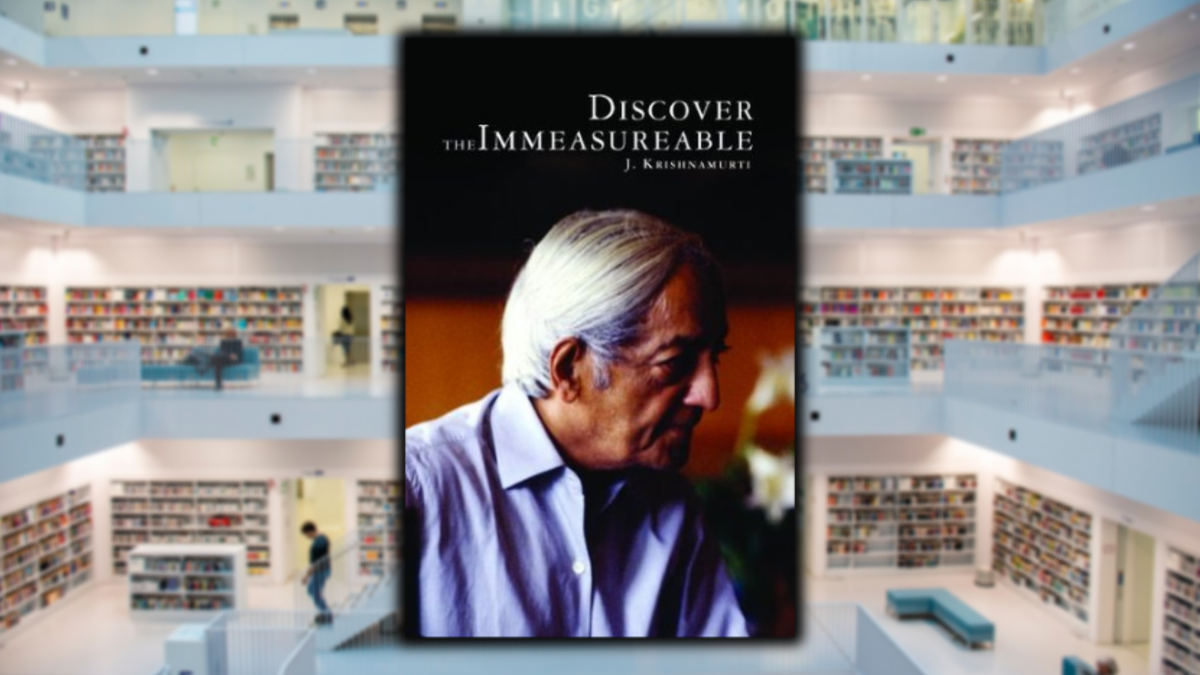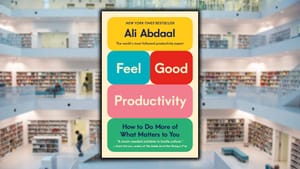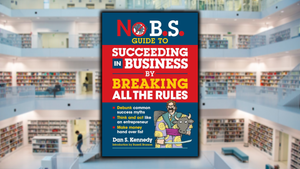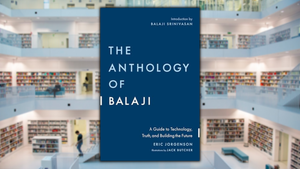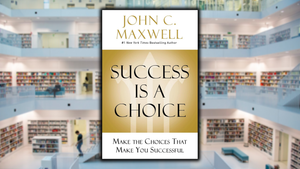
This Book is For:
*Seekers who feel as though there is more to life than the exhausting pursuit of those things that the rest of society has been trained to want
*People who are in awe of the universe and existence itself, and who want to penetrate deeper into their fantastic mysteries
*People who are interested in the functioning of the mind - how it obscures reality and perpetuates misery, but also how it allows us to perceive and participate in everything that's free and beautiful as well
*Anyone who wants to find greater clarity in life about the largest issues and challenges that confront them, and who trusts themselves to find the answers within
Summary:
"I maintain that no organization can lead man to spirituality. If an organization be created for this purpose, it becomes a crutch, a weakness, a bondage, and must cripple the individual, and prevent him from growing, from establishing his uniqueness, which lies in the discovery for himself of that absolute, unconditioned Truth."
-Jiddu Krishnamurti
When he was a young man, Krishnamurti was "discovered" by one of the leading members of the Theosophical Society and groomed to become a new World Teacher, someone who would guide the evolution of mankind through his teachings and lead humanity into a new era.
An organization was even founded to support this aim - The Order of the Star - but in August of 1929, Krishnamurti suddenly stepped down from his position and dissolved the entire organization. He did this after a short but epic speech titled, "Truth is a Pathless Land," where he asserted that no organization can ever lead a person to discover truth; there is no authority that can ever replace the need for an honest, searching inquiry into the fundamental nature of reality.
For the next 60 years, he traveled all over the world giving public talks and speaking with individuals about the vital importance of deep, personal meditation, and the radical transformation of the human psyche.
Discover the Immeasurable contains a series of six lectures given by J. Krishnamurti in the Fall of 1956, where he speaks about the inherently evil nature of authority, the constant flow of existence, and how the structure of our current society and even our own minds perpetuates needless conflict, misery, and tragedy.
What may strike you as you lean into the thoughts and "teachings" (he would reject that word, obviously) of Krishnamurti is that he usually asks questions more often than he gives answers. He never tells you what to think, but only hints at the way forward and encourages you to make the trip yourself. He asks you to develop an idea of what you think, not what he or anyone else tries to tell you to think.
His central idea here is that the "immeasurable," i.e. truth, reality, God, the universe, and the human mind, can never exist or function according to a fixed pattern. The universe is always changing and evolving, and truth is never stagnant. A mind burdened with the "known," as he would say, can never move beyond the strictures of society and discover truth, or reality.
It's about experiencing directly what is immeasurable, since "only direct experience has validity." We can't live according to theories but must flow with everything else that is going on in the universe and inside our own minds, which essentially amounts to the same thing. It's not about going off into a cave by ourselves and working out some complex theory, but about realizing that the truth is revealed in every moment and in every relationship we have with everyone and everything else that exists.
Most importantly, it's about realizing that everything we do and say matters, which is basically the definition of a meaningful life. We are networked with, in a relationship with, everything and everyone else that exists, and what we are the world is too. So if we are greedy and fearful and violent and selfish, then that's exactly what we will perpetuate in our daily lives.
We have created our society through our relationships with others and our habitual patterns of thinking, and if we want to change the world, it is impossible to leave ourselves unchanged.
This change can never happen in the future, either, because the whole time we're "trying" to become nonviolent or generous or happy, we're implicitly giving ourselves permission to be violent, greedy, and unhappy. A person who is trying to become happy has defined themselves as someone who is unhappy.
So this radical, fundamental change must happen now. There is no later. We have a total responsibility to free ourselves and to discover what is true, and this freedom can only exist now. Eternity is Now, as you'll discover by reading this breakdown, and now is the only time when we have any power.

Key Ideas:
#1: Life is Constant Movement
“Our minds have been conditioned from childhood to think in a certain way; we are educated, brought up in a fixed pattern of thought. We are tradition bound. We have special values, certain opinions, and unquestioned beliefs, and according to this pattern we live – or at least we try to live. And I think therein lies the calamity.
Because, life is in constant movement, is it not? It is a living thing, with extraordinary changes; it is never the same. And our problems also are never the same; they are ever changing. But we approach life with a mind that is fixed, opinionated; we have definite ideas and predetermined evaluations.
So, for most of us, life becomes a series of complex and apparently insoluble problems, and invariably we turn to someone else to guide us, to help us, to show us the right path.
Here, I think, it would be right for me to point out that I am not doing anything of that kind. What we are going to do, if you are willing, is to think out the problem together. After all, it is your life, and to understand it, surely, you must understand yourself. The understanding of yourself does not depend on the sanctions of another.”
Our problems cannot be solved by minds of the same quality as those that created them. As we'll discuss later, all thought is conditioned, and since life is always new - always refreshing and renewing itself - we can never bring our old patterns of thinking to bear on existing problems and expect them to be effective. Life continues to flow and evolve, and we must evolve alongside it.
Life is what's known as a wicked learning environment, where formulas and recipes fail as change is introduced. Life moves ever forward, and the correct answers we have today will not be true tomorrow. As life changes, we must change too. We are co-creators with evolution, and "that's the way it's always been done" is no longer good enough, if it ever was.
The challenges that humanity faces are too great, the stakes too high, ever to become trapped in fixed forms of thinking, handicapped by the past and what we've been trained to believe.
What's more, training will always become obsolete eventually; whereas education is a process of constant renewal, pattern, and flow. Krishnamurti challenges us ever further here and elsewhere when he asks if it's possible to live without holding beliefs of any kind. Because isn't it impossible to find the right answer if we're just filtering everything new that we learn through what we already believe?
Training is about finding the right answer, whereas education is about learning how to ask the right questions, over and over again. No authority, no beliefs, just questions, ceaselessly advancing towards greater awareness of ultimate reality - that's the challenge that Krishnamurti's thought represents. When we trust ourselves to let go of what we think we believe and question everything that we've been told, that's when we begin to find out.
#2: The Structure of Our Society Creates Conflict and War
“So long as there is nationalism, so long as you are a German or a Russian or an American, clinging to sovereignty, to an exclusive nationality, you are sure to have war. So long as you are a Christian and I am a Hindu, or you are a Muslim and I am a Buddhist, there is bound to be war.
So long as you are ambitious, wanting to reach the top of your society, seeking achievement and worshiping success, you will be a cause of war. But we are brought up on all this. We are trained to compete, to succeed, to be ambitious, to serve a particular government, to belong to a particular country or religion. Our whole education cultivates the competitive spirit and guides the mind towards war. And can we, as individual human beings, change all this?
Can you and I individually cease to be ambitious, cease to regard ourselves as Germans or Indians, cease to belong to any particular religion, to any particular group or ideology – communist, socialist, or any other – and be concerned only with human welfare?
So long as we remain attached to a group or to an ideology, so long as we are ambitious, seeking success, we are bound to create war. It may not be a war of outward destruction, but we will have conflict between each other and within ourselves, which is actually a form of war.
I do not think we see this, and even if we do, we are not serious about it. We want some miraculous event to take place to stop war, while we continue to live as we are in the present social structure, making money, seeking position, power, prestige, trying to become famous, and all the rest of it. That is our pattern, and so long as that pattern exists in our minds and hearts, we are bound to produce war.”
#3: The Individual Problem is the World Problem
“The individual problem is the world problem. It is what we are as individuals that create society, society being the relationship between ourselves and others. I am speaking – and please believe it – as one individual to another, so that together we may understand the many problems that confront us.
I am not establishing myself as an authority to tell you what to do because I do not believe in authority in spiritual matters. All authority is evil, and all sense of authority must cease, especially if we would find out what is God, what is truth, whether there is something beyond the mere measure of the mind. That is why it is very important for the individual to understand himself.”
We have created the society we live in by virtue of our actions and the habitual thoughts which we entertain; there's no one else to blame. There is literally no separation between ourselves and the problems facing the rest of society. We are one. There's no authority we can turn to for the ultimate answer, and no one to blame for the problems that confront us.
We have created the greed and the competition and fear because we are greedy and competitive and fearful. We have created the hatreds and antagonisms that populate our newsfeeds because that's what the structure of our society breeds by its very nature. So we can never say that it's not our problem or that it doesn't apply to us, because we are intimately bound up in the rest of society. We have played a part.
This is a huge responsibility, and voluntarily taking this on is an incredibly important act. We aren't personally responsible for events that took place before we were born, but it's still our responsibility now to confront the problems that plague the rest of society. Maybe it's not our fault, but it's still our responsibility because we can never separate ourselves from the wider society.
We can never say, "Oh that doesn't affect me," because what we are the world is. If we continue to behave greedily and selfishly, then everyone we're connected with will become greedier and more selfish. If we cultivate fear and anger instead of forgiveness and peace inside ourselves, the world outside will become angrier and more fearful. Gone are the days - if they ever existed - when we could say, "That's not my problem."
#4: The Mind Must Move Beyond the Known
“The mind which is burdened with the known can never find what is unknowable."
Here we have a recurring theme in many of Krishnamurti's talks and dialogs. It's this idea of shedding what we think we know, what we've been taught to accept uncritically, how we've been conditioned, and opening ourselves to the unknown, the territory beyond the mind and everything that the mind is carrying.
For Krishnamurti, God, or truth, or the universe (anything of such vast or mysterious nature), represents the unknown, the immeasurable. When we try to approach these concepts through the medium of the known, our traditions and conditioning, we are bound to come up short, with only a partial answer.
This tension between the known and the unknown is extremely uncomfortable for the "rational" mind of humans to accept, and so we retreat into the teachings and pronouncements of authority figures, established knowledge, and existing traditions. We cease questioning. We stop trying to find out.
But in a limitless, endlessly mysterious and expansive universe, God and truth and all the rest of it can never be pinned down. We can never understand the universe because in the next moment, it is not the same universe and we are not the same human being.
Finite minds can never understand or grasp the immeasurable, but we persist in our delusion that the next book, the next teacher, will give us all the comforting, final answers that we seek. But all of that exists inside the known, and a mind that is full of the past, the known, can never find what is true, can never discover the immeasurable.
#5: Ideals Are a Distraction
“After all, I can understand violence only when, with my whole mind, I give complete attention to the problem. And the moment I am wholly concerned with violence and the understanding of violence, what significance has the ideal of nonviolence?
It seems to me that the pursuit of the ideal is an evasion, a postponement. If I am to understand violence, I must give my whole mind to it and not allow myself to be distracted by the ideal of nonviolence.”
The whole time that we are striving to become nonviolent, by definition we are giving ourselves permission to be violent. As long as there is an ideal somewhere off in the future, we are freed from the responsibility of embodying that ideal in the present, and we simply never get there.
It's the same with happiness generally. The whole time you're trying to become happy, by definition you are unhappy. Someone trying to be happy has defined themselves as someone who is not happy yet, and likewise, someone who is trying to become nonviolent has defined themselves as someone who is violent. You just never get there.
We get caught up in ideals because it is a form of comfortable procrastination; it's a safe place to hide so that we don't have to make the real - and instantaneous - transformation into someone who is a living embodiment of the ideals we claim to support. This sort of procrastination saves us from having to look at our own society and our own patterns of thinking and admit that we are violent, or greedy, or selfish, and all the rest of it.
What Krishnamurti is saying here, though, is that if we give all our energy to understanding violence and our own complicity in its creation, then we would be able to understand the problem of violence. To understand a problem is to be able to solve it, and we cannot evade responsibility for our lack of understanding either. The world is what we are, and the time for evasion and procrastination is over.
#6: All Thought is Conditioned
“There is no ‘good’ conditioning or ‘bad’ conditioning – there is only freedom from all conditioning.”
There is no freedom of thought because all thought is conditioned. "Free thinking" is an oxymoron, because thought is always based on what has come before, and freedom is the immeasurable, truth, God.
In much the same way as we approached the problem of violence, if we earnestly wish to be free of conditioning, we must give our full attention to it. We must see how it's constantly operating in our lives, how nothing we can "do" will ever free us from our conditioning, and how any method we apply to breaking through our conditioning will only lead to further confusion, as Krishnamurti says in the quote below.
Of course, there are better and worse ways to be conditioned. Manners and politeness are examples of pro-social conditioning that make human societies function more smoothly and happily. If you have to be conditioned, being conditioned into practicing good manners doesn't sound so bad!
But if we wish to move beyond thought, to see if there is not more to this life and this universe than we've ever imagined, then conditioning is the ultimate impediment. It must be understood, dropped, if we are to exist in the unknown, the immeasurable.
As long as we live according to some fixed pattern, we will always live according to our conditioning. Moving beyond the known quantity of our conditioning is the only clear path forward, but it gets confusing because it's not really a path. There's no "method," says Krishnamurti, by which we can drop our conditioning and discover what is truth. He says:
“So I must realize my own conditioning and do absolutely nothing. This is very difficult. But I must know for myself that my mind is small, petty, confused, conditioned, and see that any effort to change it is still within the field of that confusion; therefore, any such effort only breeds further confusion.”
#7: It is Now or Never
“To understand the immeasurable, the mind must be extraordinarily quiet, still; but if I think I am going to achieve stillness at some future date, I have destroyed the possibility of stillness. It is now or never. That is a very difficult thing to understand because we are all thinking of heaven in terms of time.”
You will either change now or you will never change. Real, revolutionary transformation happens only in the present moment; everything else is just a modification of what came before, an adjustment to our prior conditioning.
The part of the quote above about "heaven in terms of time" is interesting as well. In many religious traditions, eternal life is the promised reward received after death, but eternity does not exist within time. Eternity is No Time, not endless time. Eternity is Now, right now, in this present moment, not somewhere else.
Alan Watts addressed this from another angle when he addressed the fears that many people had of death. It was, he said, as though they felt that death meant being locked inside a dark room forever and ever; and somehow having to "undergo" that. But that's not it either! Forever doesn't exist within time. Forever is now.
Transformation and discovery also exist now. Everything else is just procrastination. It's an escape, waiting for some authority figure to come and tell us what's true, what's going to happen, and what we should do. It's giving ourselves permission to be violent and fearful and greedy while we say that we're trying to become something else.
But when you change now, when you drop your conditioning and your fear and your greed and your selfishness and your hatred now, then you are free...now. There is no "later." Later is an excuse we make when we're afraid of our own freedom and we don't believe in the possibility of creating paradise on Earth. It's like Naval Ravikant said:
"What if this life was the paradise we were promised, but we're just squandering it?"
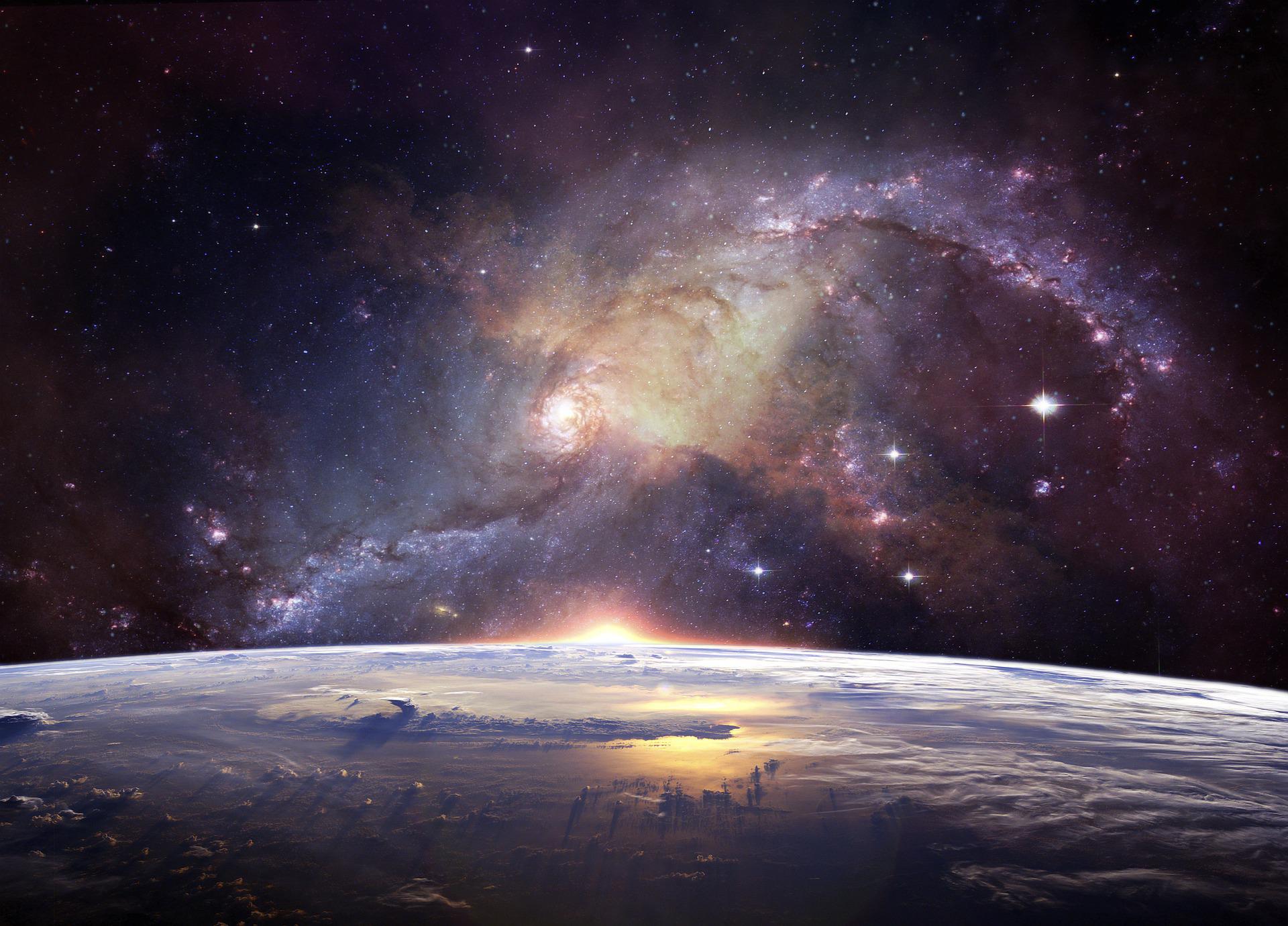
Book Notes:
“No human problem can be understood or resolved through a special way of thinking or through any dogma or belief. Though I happen to come from India, we have essentially the same problems there as you have here.”
“To understand the totality of this extraordinary thing called life, one must obviously not be too definite about these things. One cannot be definite with something which is so immense, which is not measurable by words. We cannot understand the immeasurable so long as we approach it through time.”
“So long as we have choice, surely there is no freedom. Please follow this; do not merely reject or accept it, but let us think it out together. The mind that is capable of choosing is not free because in choice there is always conflict, conscious or unconscious, and a mind that is in conflict is never free.
Our life is full of conflict; we are always choosing between this and that; you know this very well. We are always comparing, judging, evaluating, accepting, rejecting – that is the process of our life, which is a constant struggle, and a mind that is struggling is never free.”
“Your life is shaped, controlled by the society which you have created. You have created the wars, the leaders; you have created the organized religions of which you are now slaves.
So your life is predetermined. And to be free, you must first be aware that your life is predetermined, that it is conditioned, that all your responses are more or less the same as those of everybody else throughout the world.
Superficially, your responses may be different; you may respond one way here, another way in India or in China, and so on, but fundamentally you are held in the framework of your particular conditioning, and you are never an individual.
Therefore it is absurd to talk about freedom and self-determination. You can choose between blue cloth and red cloth, and that is about all; your freedom is on that level.
If you go into it very deeply, you will find that you are not an individual at all. But by going into it very deeply, you will also find that you can be free from all this conditioning – as a German, as a Hindu, as a believer or a nonbeliever.
You can be free from it all. Then you will know what it is to have an innocent mind, and it is only such a mind that can find out what is truth.”
“We live in the field of the known, do we not? The known is that with which I have identified myself – my family, my country, my experiences, my job, my friends, the virtues, the qualities, the knowledge I have gathered, all the things I have known.
So the mind is the result of the past; the mind is the past. The mind is burdened with the known. And can the mind free itself from the known?
That is, can I die to all that I have accumulated – not when I am a doddering old man, but now? While I am still full of vitality, clarity, and understanding, can I die to everything that I have been, that I am going to be, or think that I should be? That is, can I die to the known, die to every moment?”
“I do not think we sufficiently realize the necessity of being free of this compulsion to follow authority, inward or outward. And I think it is very important psychologically to understand this compulsion; otherwise, we shall go on blindly struggling in this world in which we live and have our being, and we shall never find that other thing which is so infinitely greater.
We must surely break away from this world of imitation and conformity if we are to find a totally different world. This means a really fundamental change in our lives – in the way of our action, in the way of our thought, in the way of our feeling.
But most of us are not concerned with that; we are not concerned with understanding our thoughts, our feelings, our activities. We are only concerned with what to believe or not to believe, with whom to follow or not to follow, with which is the right society or political party, and all the rest of that nonsense.”
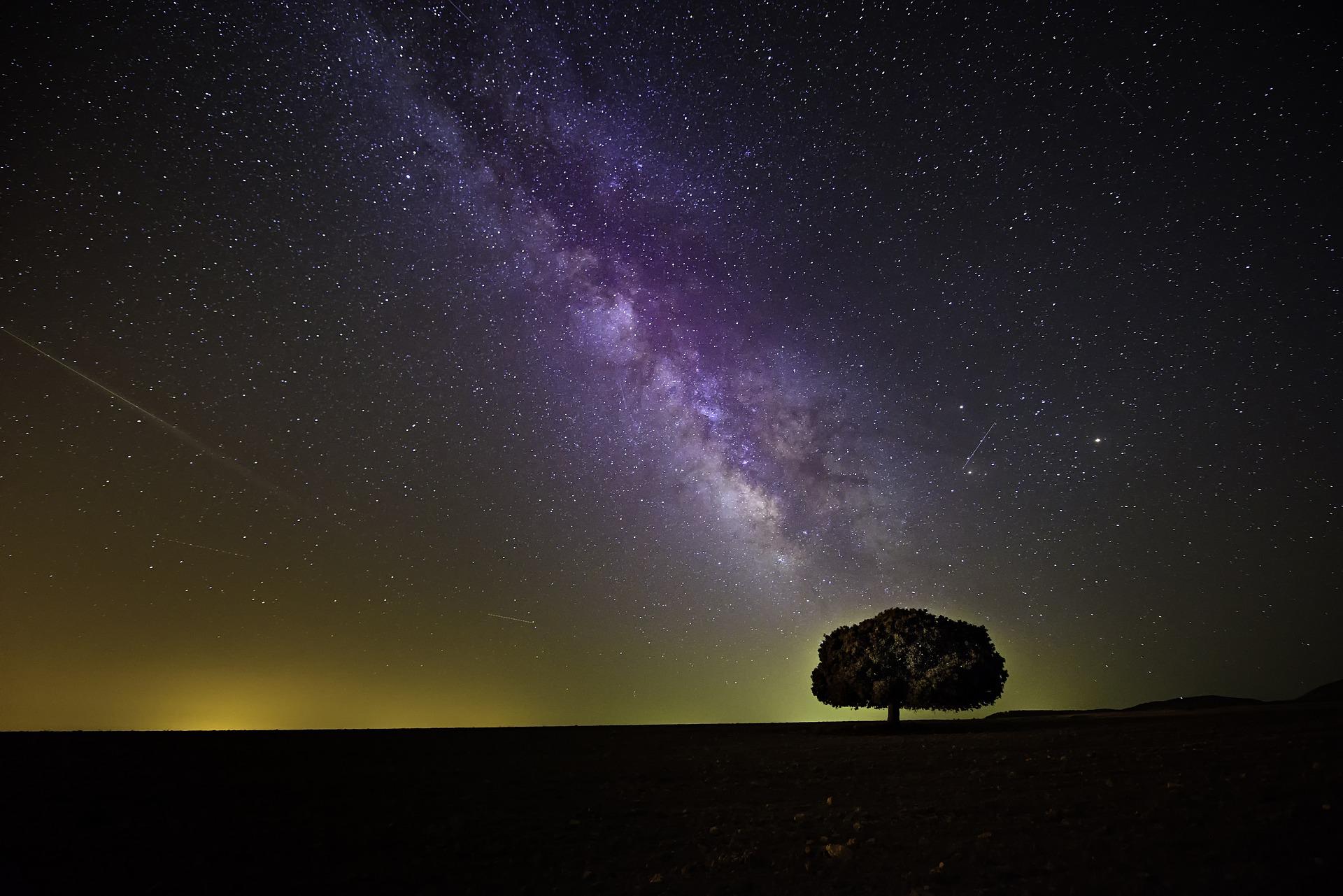
Important Insights from Related Books:
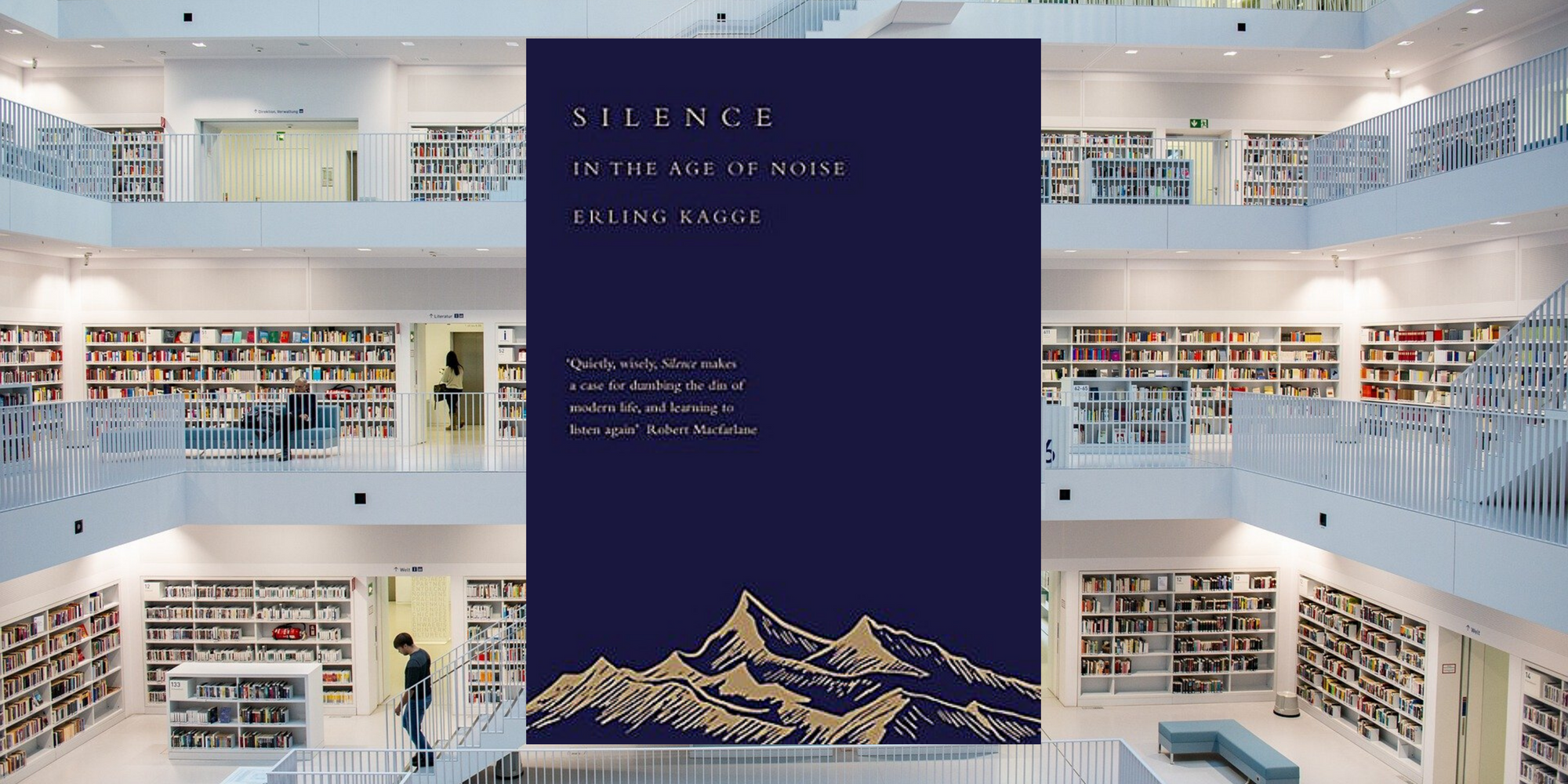
Silence, by Erling Kagge:
You don't have to go all the way to Antarctica to find silence, but Erling Kagge did. Way back in 1993, he became the first person to walk to the South Pole, solo. The airplane company that dropped him off insisted he take a radio with him, but he dumped the batteries in the trash before leaving the plane. Over the next 50 days, he would experience the most profound silence of his life to date.
It could be argued that sitting in silence, listening deeply, and guarding against negative inputs are all moral imperatives, in that their absence leads directly to some of the worst evils ever unleashed upon humanity.
How much pain and suffering could be avoided if we simply checked in with ourselves once in a while, listened deeply to the people who were trying to communicate with us, and protected ourselves against the toxic sludge that constantly assaults our eyes and ears as we go about our day?
“We spend a lot of time looking for happiness when the world right around us is full of wonder. To be alive and to walk on the Earth is a miracle, and yet most of us are running as if there were some better place to get to. There is beauty calling to us every day, every hour, but we are rarely in a position to listen."
“Shutting out the world is not about turning your back on your surroundings, but rather the opposite: it is seeing the world a bit more clearly, staying a course and trying to love your life. Silence in itself is rich. It is exclusive and luxurious. A key to unlock new ways of thinking. I don’t regard it as a renunciation or something spiritual, but rather as a practical resource for living a richer life.”
“If there’s a full moon high in the sky and we’re busy thinking about something else, the moon disappears.”
Read the Full Breakdown: Silence, by Erling Kagge
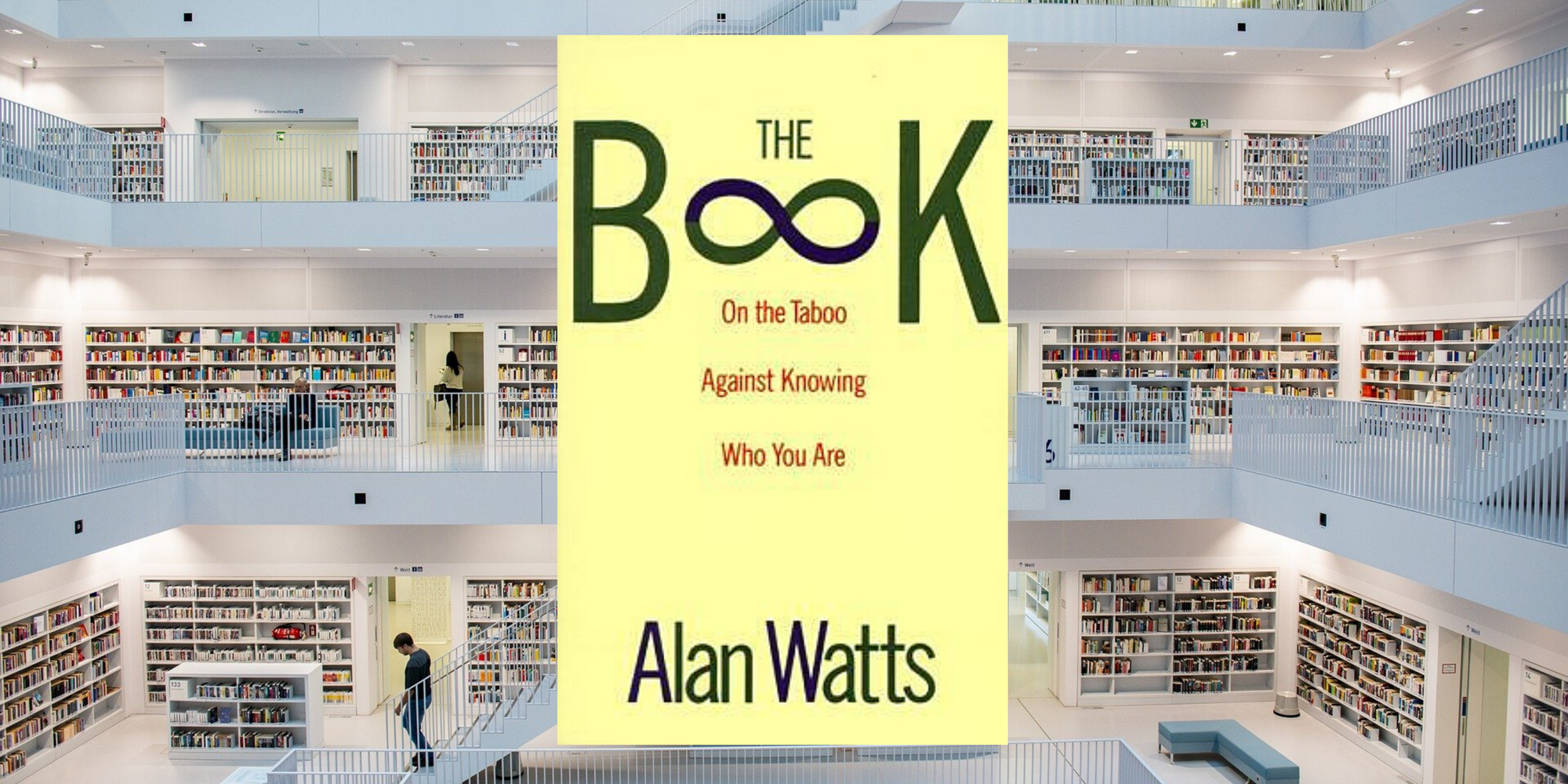
The Book, by Alan Watts:
You didn't come into the world, you came out of it. This should be the simplest, most obvious thing in the world, but it flies so directly in the face of our normal way of experiencing the world that we don't tend to notice it.
It's almost as if it were an unspoken taboo, something kept secret, yet vaguely known; that we are not separate from the universe, but are instead intimately bound up with it. You can think of it almost like a costume party where, although it's obvious that, just as the ocean creates waves, the universe creates people, no one wants to or is able to give up the game.
Ordinary experience leads us to believe that we are somehow like visitors on this earth, something contingent and that we don't quite belong. This way of thinking, Alan Watts teaches us, is an illusion.
“Society is our extended mind and body. Yet the very society from which the individual is inseparable is using its whole irresistible force to persuade the individual that he is indeed separate! Society as we now know it is therefore playing a game with self-contradictory rules.”
“No considerate God would destroy the human mind by making it so rigid and unadaptable as to depend upon one book, the Bible, for all the answers. For the use of words, and thus of a book, is to point beyond themselves to a world of life and experience that is not mere words or even ideas. Just as money is not real, consumable wealth, books are not life. To idolize scriptures is like eating paper currency.”
“Problems that remain persistently insoluble should always be suspected as questions asked in the wrong way.”
Read the Full Breakdown: The Book, by Alan Watts
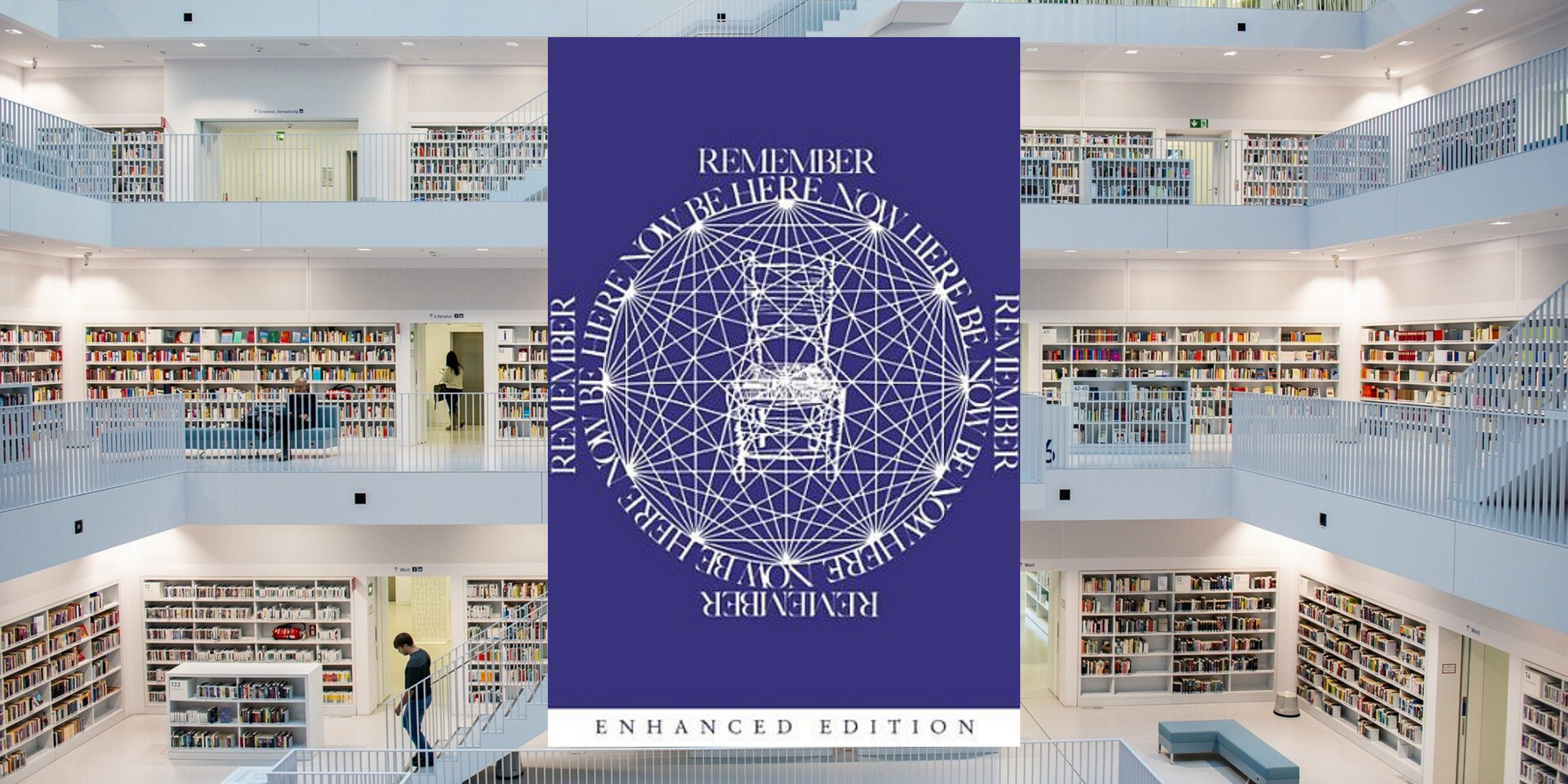
Be Here Now, by Ram Dass:
Way before The Power of Now, there was Be Here Now, by Ram Dass, formerly known in Harvard circles as Richard Alpert, Ph.D. He and Timothy Leary were colleagues, in fact, and you could say that the two of them went in separate directions, whereas Leary ended up as sort of a cautionary tale of excess and the target of defamatory campaigns by the U.S. government and others, while Ram Dass became one of the most influential spiritual teachers of all time.
Be Here Now has sold about 2 million copies worldwide, having influenced everyone from Wayne Dyer, Lawrence Ferlinghetti, and George Harrison to Steve Jobs, and if you’re into spirituality, religious studies, psychology, and all that good stuff, it should definitely make it onto your reading list sooner rather than later.
Divided into four sections, you can think of it as like a manual for conscious being; in other words, being here now, immediately, where all the action is. There’s really no other place you could be, when you think about it, because everything that has ever happened in either your life or the history of the universe has happened now.
“Behind all the individual differences, every label you can think of becomes background instead of figure. What stands out is here we are, here and now. That’s all there is, and if it isn’t beautiful, man, there’s nothing.”
“To him who has had the experience no explanation is necessary, to him who has not, none is possible.”
“Only when I know who I am will I know what’s possible.”
Read the Full Breakdown: Be Here Now, by Ram Dass
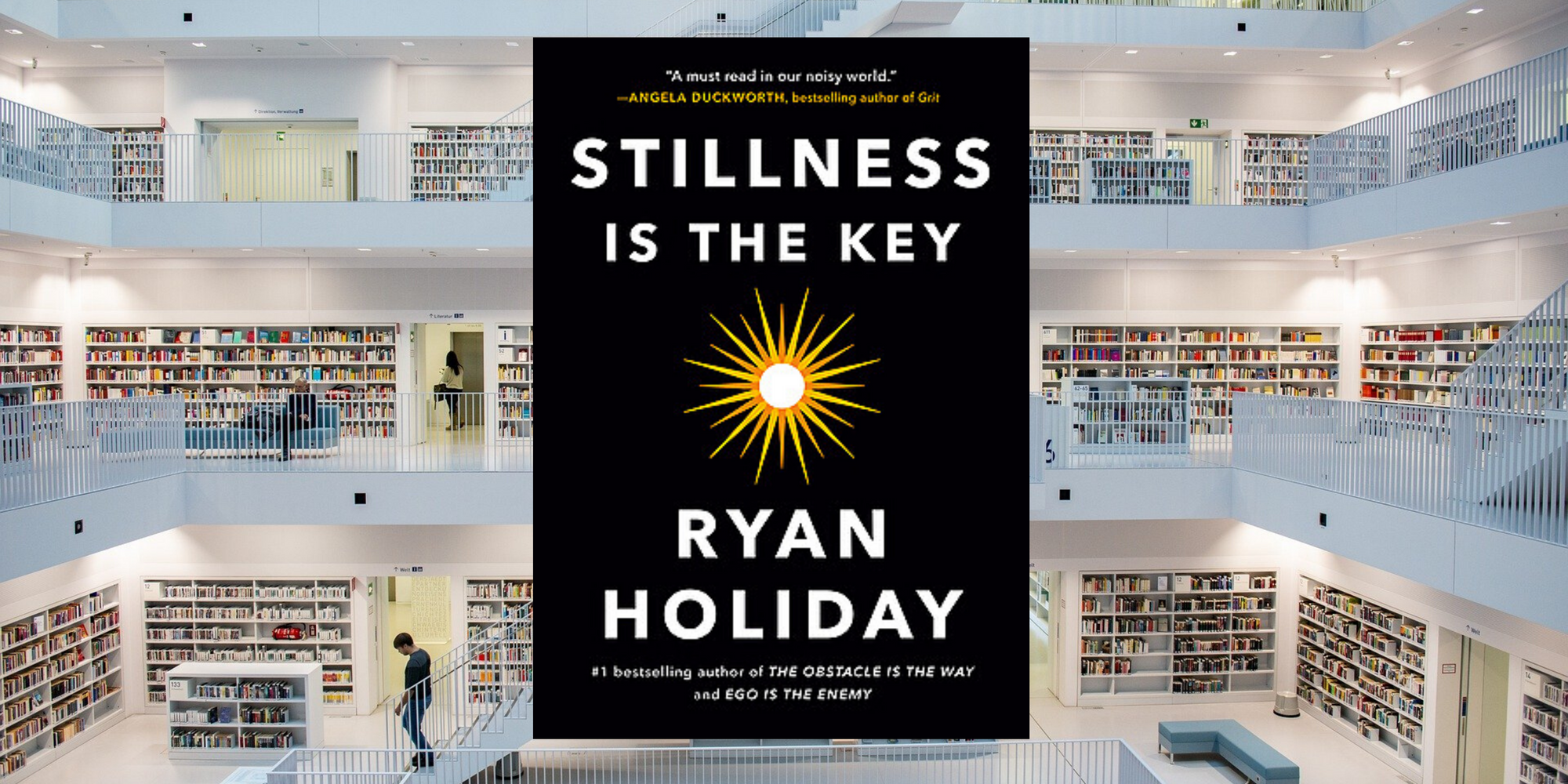
Stillness is the Key, by Ryan Holiday:
Through the stories of people like Confucius, Seneca, Marcus Aurelius, Thich Nhat Hanh, Nietzsche, Fred Rogers, Anne Frank, Winston Churchill - and on and on - Ryan Holiday’s book will show you that stillness isn’t just “sitting still,” or silence, but a superpower that will lead directly to self-mastery, discipline, focus, achievement, and, indirectly, to personal fulfillment.
You’ll learn how to become like a deep lake, capable of cultivating stillness and serenity, while the waves crash and break above you on the surface. While the rest of the world is like a tiny sailboat being thrashed about in a storm, you’ll be as solid as the ocean floor.
“The call to stillness comes quietly. The modern world does not.”
“What’s essential is invisible to the eye.”
"You were born free—free of stuff, free of burden. But since the first time they measured your tiny body for clothes, people have been foisting stuff upon you. And you’ve been adding to links to the pile of chains yourself ever since.”
Read the Full Breakdown: Stillness is the Key, by Ryan Holiday
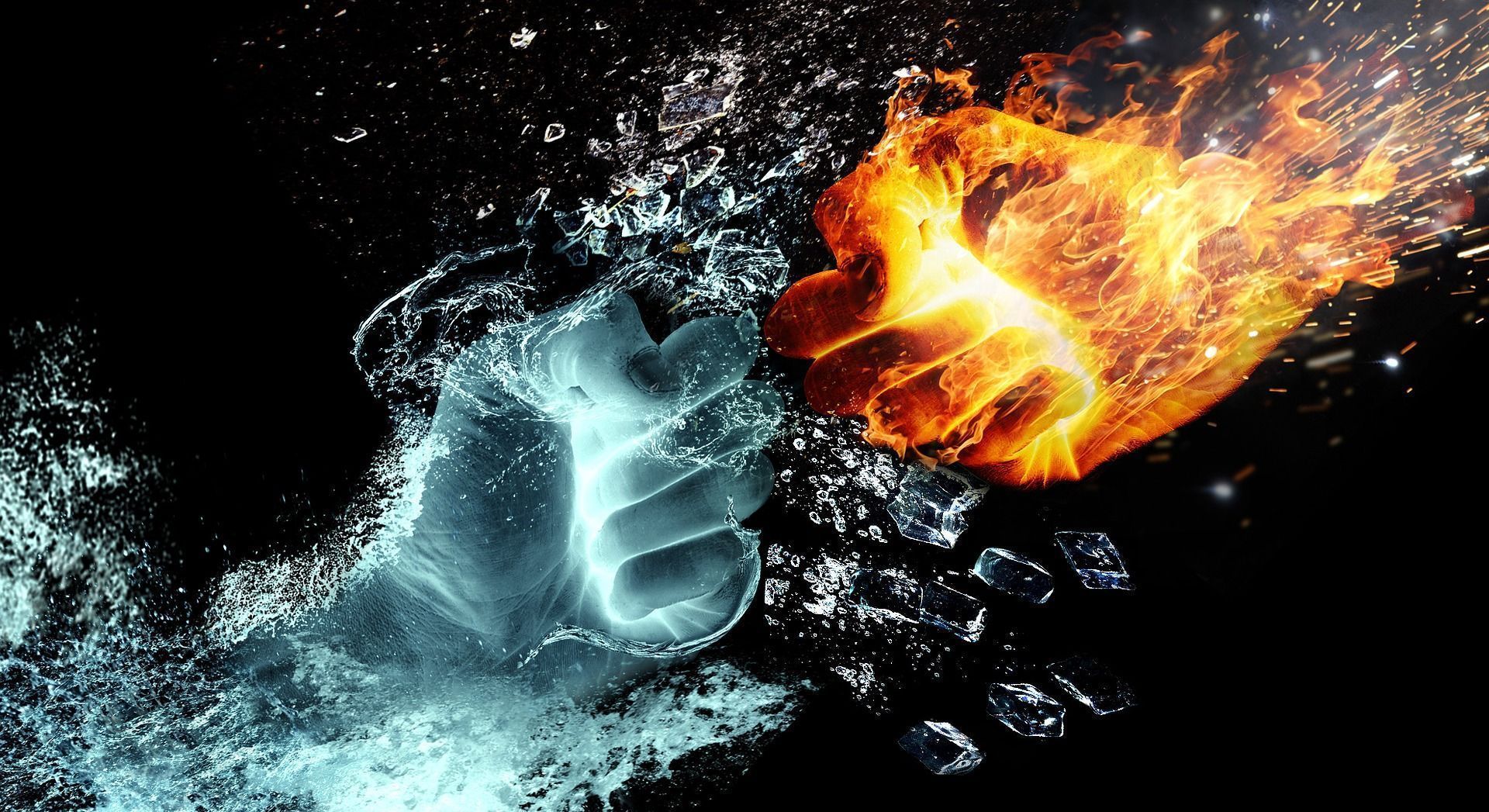
The View from the Opposition:
No one's ideas are beyond questioning. In this section, I argue the case for the opposition and raise some points that you might wish to evaluate for yourself while reading this book.
#1: Don't Create a "Straw Man"
A straw man is a logical fallacy whereby you take the most exaggerated version of somebody's argument and attempt to refute that, instead of honestly engaging with their ideas in the spirit in which they were intended.
It's like if you were to suggest to someone that living beneath one's means is a powerful way of living because you're not burdened with owning a lot of "stuff" and slaving away at a job you hate just so you can afford to buy a bunch of things you don't need, and then they come back with, "What, so I'm supposed to sell everything I own and live under a bridge?"
You're attacking the weakest form of their argument, which isn't that they should renounce all their worldly possessions, but rather that they should perhaps think about trying to live on less. The same thing happens with Krishnamurti when he talks about things like living without any beliefs or according to a fixed pattern.
The idea isn't that you stop believing that 2 + 2 = 4, or that when you throw an object up in the air it'll come back down. He's also not suggesting that you "forget" how to get to work in the morning or suddenly stop paying your taxes because it's a "societal convention."
It's simply that you should (and I don't even like the word "should" here) pay deep attention to the operations of your own mind, the way you're showing up in the world and in your outer relationships, and the consequences of your habitual patterns of thinking and acting.
"The test of a first-rate intelligence is the ability to hold two opposed ideas in the mind at the same time and still retain the ability to function.”
-F. Scott Fitzgerald

Action Steps:
So you've finished reading. What do you do now?
Reading for pleasure is great, and I wholeheartedly support it. However, when I'm reading for a particular purpose, I am intensely practical. I want a result. I want to take what I've learned and apply it to my one and only life to make it better!
Because that's really what the Great Books all say. They all say: "You must change your life!" So here, below, are some suggestions for how you can apply the wisdom found in this breakdown to improve your actual life.
Please commit to taking massive action on this immediately! Acting on what you've learned here today will also help you solidify it in your long-term memory. So there's a double benefit! Let's begin...
#1: Do Nothing
To live in the world you must act. We all have to survive, work to put food on our tables, create art, and all the rest of it. So no one is suggesting that we stop all that (even if we could) and somehow just sit and meditate by ourselves in a cave somewhere for the rest of our lives.
However, it's important to remember that the current society we live in is a product of the patterns of thinking and action that created it. All our frenetic "doing" has led exactly to the kinds of challenges and dangers we face now, and so clearly, something has to change.
What Krishnamurti often suggests, however, is that there is no "method" we can follow that will automatically lead us to truth, safety, or right action. It's only from observing our own mind and the operations of our psyche that we discover the immeasurable, and see how our conditioning is fueling our present misery.
We can never "do" anything about it, because anything we can think of to do is only going to be a product of our own conditioning, and, thus a continuation of it. So what can we do?
Well, nothing! We can't do anything to dissolve our prior conditioning, but by looking within, by earnestly paying attention to the structure and functioning of our own minds through meditation, the revolutionary transformation that we seek happens of itself.
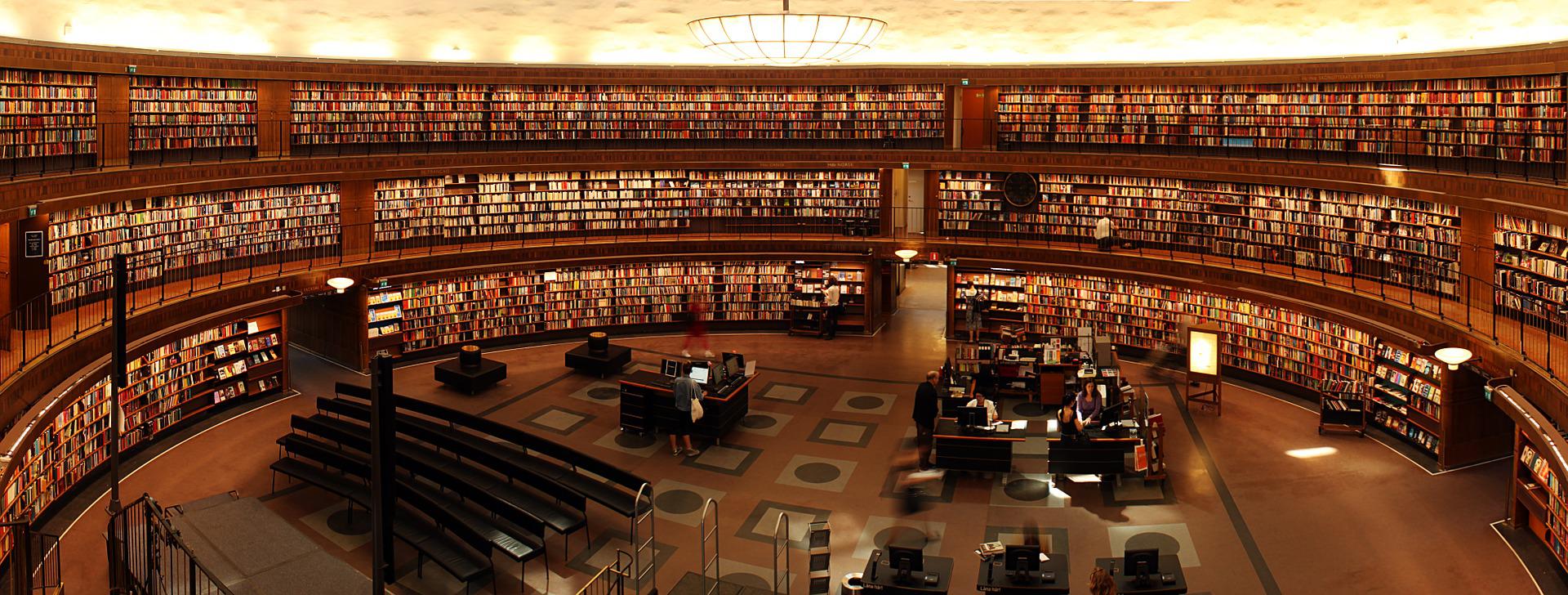

About the Author:
Jiddu Krishnamurti was born on 11 May 1895 in Madanapalle, a small town in south India. He and his brother were adopted in their youth by Dr. Annie Besant, then president of the Theosophical Society. Dr. Besant and others proclaimed that Krishnamurti was to be a world teacher whose coming the Theosophists had predicted. To prepare the world for this coming, a worldwide organization called the Order of the Star in the East was formed and the young Krishnamurti was made its head.
In 1929, however, Krishnamurti renounced the role that he was expected to play, dissolved the Order with its huge following, and returned all the money and property that had been donated for this work.
From then, for nearly sixty years until his death on 17 February 1986, he traveled throughout the world talking to large audiences and to individuals about the need for a radical change in humankind.
Krishnamurti is regarded globally as one of the greatest thinkers and religious teachers of all time. He did not expound any philosophy or religion, but rather talked of the things that concern all of us in our everyday lives, of the problems of living in modern society with its violence and corruption, of the individual's search for security and happiness, and the need for humankind to free itself from inner burdens of fear, anger, hurt, and sorrow.
Krishnamurti reminded his listeners again and again that we are all human beings first and not Hindus, Muslims, or Christians, and that we are like the rest of humanity and are not different from one another. He asked that we tread lightly on this earth without destroying ourselves or the environment. He communicated to his listeners a deep sense of respect for nature. His teachings transcend man-made belief systems, nationalistic sentiment, and sectarianism. At the same time, they give new meaning and direction to humankind's search for truth. His teaching, besides being relevant to the modern age, is timeless and universal.
Additional Resources:
Jiddu Krishnamurti - Wikipedia
Jiddu Krishnamurti - Truth is a Pathless Land
This Book on Amazon:
Discover the Immeasurable, by Jiddu Krishnamurti
If You Liked This Book:
The Revolution from Within, by Jiddu Krishnamurti
The First and Last Freedom, by Jiddu Krishnamurti
